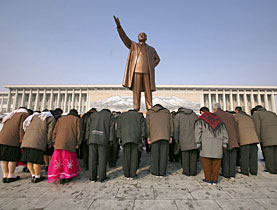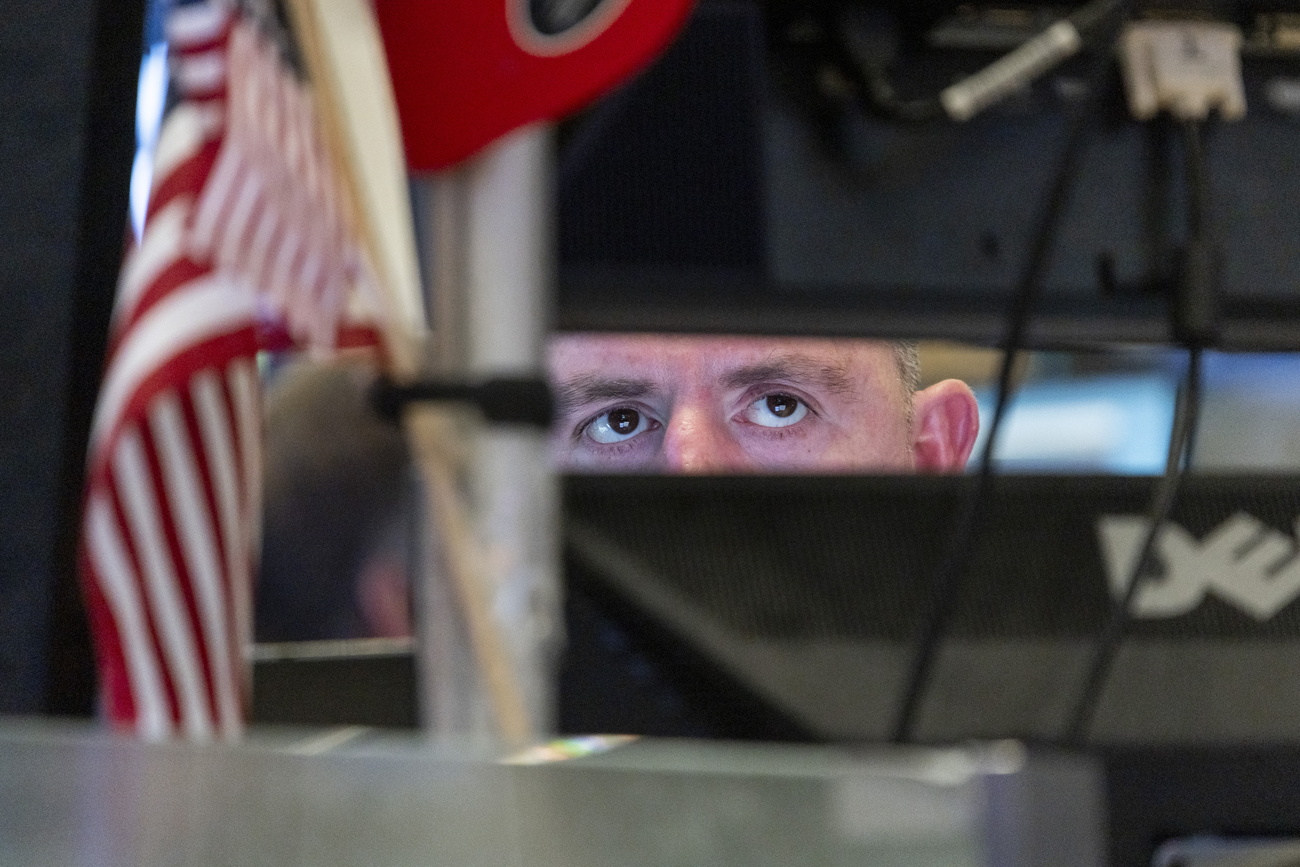North Koreans seek inspiration in Switzerland

Switzerland has hosted a semi-secret visit from a very secret country, with three diplomats from North Korea spending ten days studying the federal system.
The guests were looked after by Fribourg University’s Federalism Institute. After four days of study they travelled to different regions of the country speaking to local politicians and officials. News of the visit only made it into the newspapers after they had left.
“They were certainly surprised by the complexity of the system. They realised everything was decentralised, but very efficient,” Nicolas Schmitt, senior research fellow at the institute, who accompanied the delegation, told swissinfo.
It may be a surprise to many that North Korea should be interested in federalism at all. But the former leader, Kim Il-sung – who ruled the country from 1948 to 1994 – spoke of uniting North and South Koreas through a federal system under which each would retain its own system, Schmitt explained.
“Obviously they realised that the Swiss system could not be imported as it is to Korea, because the background of the two countries is so different. So what they were interested in was to note some ideas.”
But Schmitt pointed out that it is not only the background which is different; in general federalism is used to bring together entities where the differences lie in religion or language. “It would be a first to try to bring about coexistence between entities with different socio-economic systems,” he said.
Not only that: federalism tends to work best where there are a number of entities, not just two. And a federal state must be governed by the rule of law.
It is up to the visitors to draw their own conclusions from what they saw, Schmitt said.
Interest
In any case the guests were evidently very interested in the subject. Christian Varone, police chief of canton Valais, was impressed by the meeting he had with them.
“They asked very precise organisational questions,” he told swissinfo.
What seems to have struck them most was the decentralisation of the Swiss police system, which is organised at cantonal level. “Obviously that was something very new in comparison with such a centralised state as theirs.”
Schmitt was pleasantly surprised by the warmth of the welcome the visitors received: the Swiss were curious to meet them and were very open, he said.
Nevertheless, given the nature of North Korea it was not a normal visit. “We wanted to avoid them being pestered by journalists. They weren’t here to answer questions. And it was important that words shouldn’t be put into their mouths that might have got them into trouble when they got back to Pyongyang,” Schmitt explained.
Swiss cooperation
The visit was part of Switzerland’s cooperation programme with North Korea run by the Swiss Agency for Development and Cooperation (SDC). Capacity development to help bring the isolated country into the international community is an important part of the programme. The SDC is optimistic that this will bear fruit.
“Changes happen slowly, but they do happen,” SDC spokesman Georg Farago told swissinfo by email.
The SDC organises several courses a year for North Koreans. They cover such topics as agricultural research, business trends and international relations.
“Training courses in-country and abroad always provide a picture of the outside world for a very closed society,” Farago maintained.
Jürg Krauer, a senior research scientist at Bern University’s Centre for Development and Environment, gave a series of lectures at the Academy of Agricultural Science under the programme last year. His speciality is geoprocessing: in this case using satellites to obtain information about crop yields to help improve the management of resources.
But his task was not only technical. An essential aspect was to get the various departments of the academy used to the idea of passing the information among themselves and to help them to network with the international community.
“They have a completely different attitude to disseminating knowledge,” he told swissinfo. “They need to change their communications culture.”
Controversy
Whether the Swiss cooperation with North Korea is really laying the groundwork for a change in attitude that will bring the country out of isolation is a matter of dispute. “It’s a challenge to monitor changes in behaviour when it comes to newly gained institutional knowledge,” Farago admitted.
Some Swiss parliamentarians think the cooperation is a waste of time and resources.
“North Korea is a totalitarian dictatorship. Human rights are ignored. Its nuclear programme flouts international agreements,” says a parliamentary motion submitted in 2008. “We can see today that North Korea is no longer showing any signs of a ‘cautious opening-up’… Even if the arguments [in favour of cooperation] were once correct, that is not the case any more.”
The SDC programme will terminate at the end of 2011.
swissinfo, Julia Slater
Switzerland, along with Sweden, is a member of the supervisory commission which ensures compliance with the armistice between the two Koreas.
In the wake of the famine of the 1990s, Switzerland was one of the first to offer humanitarian aid.
And almost alone among donors, it subsequently turned its humanitarian commitment into a long-term development programme.
The programme is run by the Swiss Agency for Development and Cooperation.
Much of the programme is specifically geared to improving agricultural output, but it is also aimed at integrating North Korea into the international community.
The three-man delegation which visited Switzerland to learn about its federal system came from North Korea’s Institute for Disarmament and Peace.
Swiss cooperation has been strongly criticised in parliament, and is to end after 2011.
Kim Jong-il’s third son, Kim Jong-un, whom many observers think will succeed his father, spent some of his teenage years at school near Bern.

In compliance with the JTI standards
More: SWI swissinfo.ch certified by the Journalism Trust Initiative











You can find an overview of ongoing debates with our journalists here . Please join us!
If you want to start a conversation about a topic raised in this article or want to report factual errors, email us at english@swissinfo.ch.